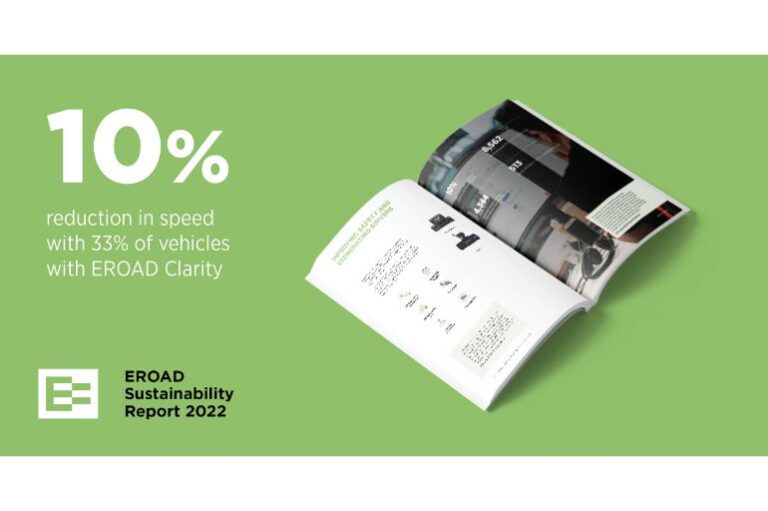“Sustainability means a lot to us because if you’re looking at the value of EROAD it’s: We are here to create safer and more sustainable roads. It has always been part of our value as a company,” said Ginger Li, sustainability product manager at EROAD, a telematics and fleet management group operating in New Zealand, North America and Australia.
To be sure, said Li, safe driving equates to eco driving. She invoked a statistic from EROAD’s safe driver gamification system which shows that the best drivers — that is those who are awarded four and a half, or the top five stars — use 6.2 percent less fuel compared with their lower scoring colleagues on like-for-like routes. Another testimony: in six months of using the EROAD system, a fleet’s vehicle idling was reduced 8 percent.
I was speaking with Li following the release of the company’s 2022 Sustainability Report, a 96-page document traversing its own corporate goals, as well as how it’s helping its clients and the communities they operate in.
The report is packed with detail, and adheres to United Nations’ protocols for ESG (environment, social, governance) reporting. It notes, with its 8,000 customers and more than 200,000 in-vehicle devices: “We have have the opportunity, through our customers in New Zealand, North America and Australia to improve community safety, conserve and improve the environment and support sustainable economic growth.”
To conserve the environment EROAD is committed to bettering driving behaviour, optimising fleets, maintaining vehicle health, reducing fuel usage, promoting eco driving, and enabling fleets to evaluate and transition to low-emission vehicles.
EROAD, which is headquartered in Auckland, New Zealand, has been certified by the country’s government-backed environment consultancy Toitū — a household word there derived from Māori, meaning pure and also meaning to be sustainable. Toitū Envirocare have carbon measurement and reduction programs.
After measuring their emissions through the Toitū program, EROAD said it is now developing initiatives to cut them and that it will publish details and goals in its 2023 sustainability report. Meanwhile, its own fleet includes 14 electric vehicles.
What I really like about EROAD’s sustainability thinking is how it has aligned its goals with the United Nations’ sustainable development goals (or SDGs). Broadly these goals look to create a better world by not only climate change, but also poverty and inequality.
EROAD has addressed seven of the UN’s SDGs, saying these are the ones aligned with its business and the ones where they believe they can make a positive difference: health and wellbeing; education; innovation and infrastructure; inequalities; responsible consumption and production; peace, justice and strong institutions, and climate action.
Sounds like a worthwhile journey.






